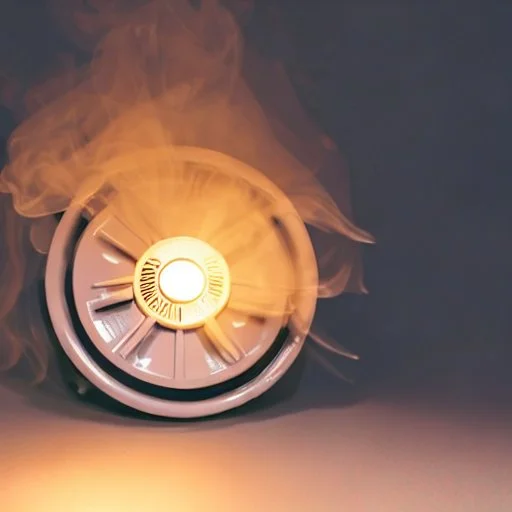July 19, 2025

In the symphony of our daily lives, the shrill chirping sound of a smoke alarm acts as an urgent conductor, alerting us to potential dangers in our surroundings. Like a vigilant guard, it dutifully fulfils its duty to safeguard our homes and loved ones. However, understanding the meaning behind this seemingly never-ending noise is crucial for ensuring our safety.
This article delves into the intricacies of deciphering the chirping patterns emitted by smoke alarms and sheds light on their significance. By exploring common causes of these alarming sounds, we can troubleshoot and rectify any issues that may compromise their functionality. Moreover, emphasising the importance of regular maintenance will highlight how neglecting such crucial devices can have dire consequences.
By fostering a sense of belonging within our community, we encourage everyone to respond promptly and appropriately when faced with chirping alarms. Together, we can cultivate a safe environment where each member takes responsibility for protecting themselves and others from potential hazards.
So let us embark on this journey towards understanding the language spoken by these indispensable guards - for knowledge is power when it comes to preserving lives and homes.
The different beeping patterns emitted by smoke alarms can provide valuable information about their status and potential issues. Understanding these patterns is crucial for troubleshooting any problems that may arise with the alarm system.
One common beeping pattern is a single, intermittent beep, which typically indicates low battery power and serves as a reminder to replace the batteries.
Another pattern is a continuous beeping sound, which signifies an issue with the alarm itself or its wiring. In such cases, it is important to consult the manufacturer's maintenance checklist and follow the recommended steps to resolve the problem.
By familiarising ourselves with these various beeping patterns and their meanings, we can effectively address any issues that may arise with our smoke alarms and ensure their proper functioning.
One common cause of the beeping noise in household fire detectors is a flat battery, with around 60% of cases being due to this problem. When the battery power drops below a certain level, smoke alarms are designed to emit regular beeps to let you know that the battery needs replacing. This is an important safety feature to ensure that the alarm always works properly.
However, it's important to remember that not all beeping sounds from smoke alarms mean the battery is low. False alarms can also happen because of things like dust or bugs inside the alarm, electrical problems, or even environmental factors like high humidity or extreme temperature changes. So, when you hear beeping sounds from smoke alarms, it's crucial to investigate and address the specific cause properly.
To troubleshoot and fix chirping alarms, it is important to identify the underlying cause and implement appropriate solutions.
A few troubleshooting techniques can help determine the reason behind the alarm's chirping sound. Firstly, make sure that the smoke alarm has a fresh battery installed and that it is properly connected.
If the battery is not the issue, check for common alarm malfunctions such as dust or debris accumulation within the unit. Cleaning the smoke alarm with a soft brush or compressed air can often resolve this problem.
Additionally, if none of these steps work, consider replacing the entire unit as it may be reaching its end of life.
By following these troubleshooting methods and addressing common alarm malfunctions, individuals can successfully eliminate the chirping sound and maintain a safe home environment.
Regular maintenance is bloody crucial for making sure ya smoke alarms are workin' their best and keepin' ya safe. It helps ya catch any problems early and fix 'em before they become big issues that could put ya in danger.
One big part of regular maintenance is changin' the batteries in ya smoke alarms. Batteries are what power these things, and if they start goin' bad, ya smoke alarms won't work properly or might not work at all. By changin' the batteries regularly, ya can make sure ya smoke alarms are always workin' at their full potential.
This not only makes ya early warnin' systems more effective, but it also reduces the chances of false alarms or malfunctions caused by low battery power.
So, makin' sure ya change the batteries regularly is a bloody important part of keepin' ya home safe and secure. It guarantees that ya smoke alarms will always be workin' like they should.
A crucial step in maintaining the functionality of smoke alarms is making sure they respond properly to the continuous noise they make.
When a smoke alarm starts beeping, it's important to figure out the problem before ignoring or disregarding it. One common reason for beeping alarms is a low battery. To fix this, you should first find the alarm that is beeping by listening carefully and following the sound. Once you've identified it, replace the battery with a new one.
It is recommended to use high-quality batteries and avoid mixing different brands or types of batteries in the same device. It's also important to follow the manufacturer's instructions on how to replace the battery and make sure it's installed correctly.
By promptly addressing beeping alarms and using the right troubleshooting techniques, like replacing the battery, individuals can maintain the effectiveness of their smoke alarms and improve overall fire safety at home or in public spaces.
The chirping noise of smoke alarms can have different meanings depending on the pattern. It's important to understand these patterns to troubleshoot and fix any issues.
Common causes of chirping include flat battery, dust build-up, or a faulty sensor. Regular maintenance is vital to ensure smoke alarms work correctly.
By promptly addressing chirping alarms and taking necessary actions, we can ensure the safety of our homes and loved ones from potential fire risks.
Remember, a small chirp today can save lives tomorrow!
For any further assistance, contact EA Electrics, a local electrician in Sydney, NSW.